Geronimo the alpaca killed as legal row ends
- Published
Geronimo the alpaca was led away to be destroyed on Tuesday
An alpaca at the centre of a legal row with the government has been killed.
Geronimo twice tested positive for bovine tuberculosis, and the Department of Food, Environment and Rural Affairs (Defra) ordered him to be euthanised to stop the spread of the disease.
Owner Helen Macdonald disputed the results and mounted several High Court challenges to save him.
"I am absolutely disgusted by this government. These are barbaric actions," she said.
Defra staff dressed in blue overalls, goggles and masks, accompanied by police, arrived at her farm in Wickwar, near Bristol, at about 11:00 BST and led Geronimo away, with the scene broadcast on an online live feed of the enclosure.
A spokesman confirmed the destruction warrant had been carried out after Geronimo was taken away from his pen and loaded into a trailer.
The vehicle then left the scene under a police escort, with a number of protesters watching.
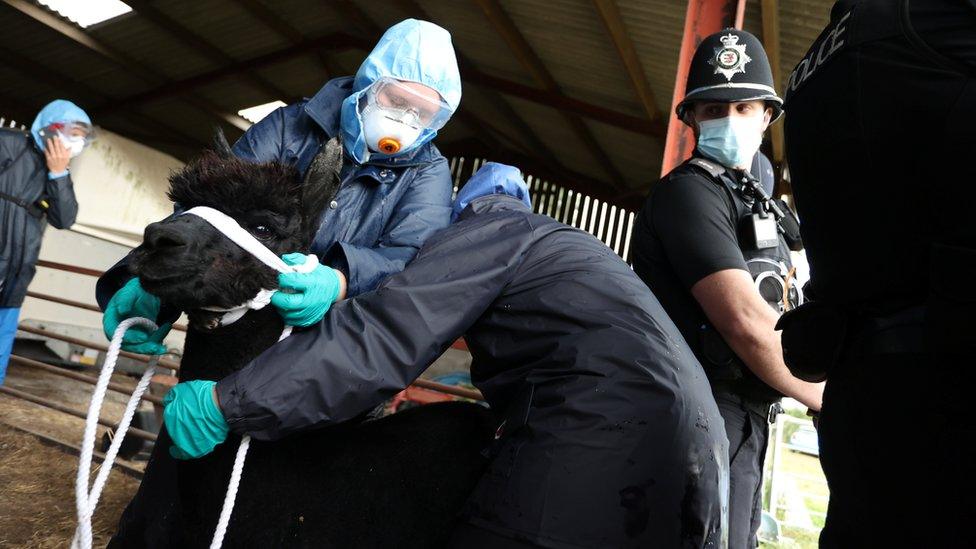
Defra said Geronimo was euthanised in order to control the spread of bovine tuberculosis
Ms Macdonald said the government had refused to act in good faith and had ignored her pleas for constructive dialogue.
"We know now they have been stringing us along for the last week, fobbing us off by saying people are on holiday and would get back to us this week," she said.
"In fact, all the time they were simply planning to murder Geronimo. This is yet another appalling demonstration of bad faith and duplicity by the secretary of state and everyone at Defra.
"Geronimo has been manhandled out of my farm. He was rounded-up and dragged into a horsebox."
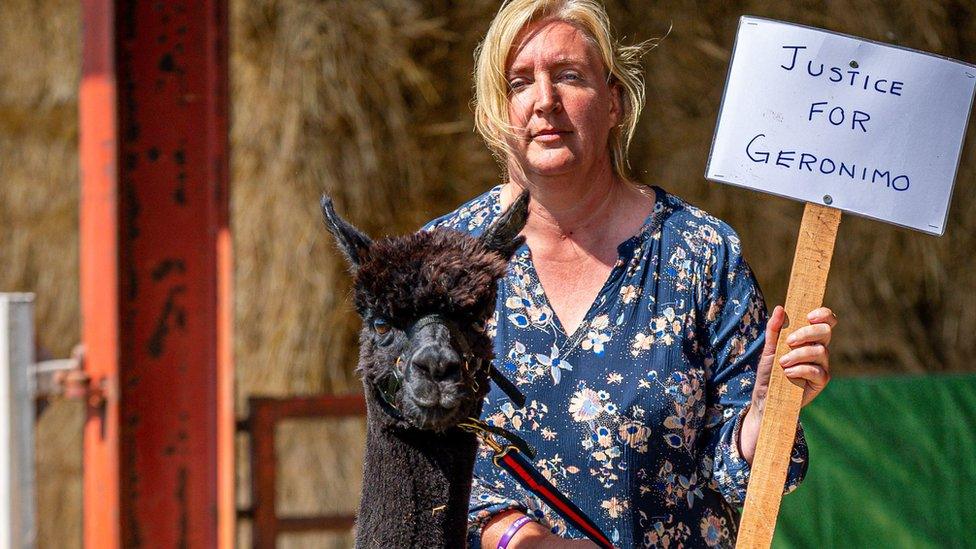
Ms Macdonald received an outpouring of support from the public
Supporters had been camping out at the farm to try to prevent officials arriving to destroy Geronimo, and some were seen talking to police as the animal was removed.
One woman was briefly arrested after spraying officers with a water pistol, but was quickly de-arrested.
Ms Macdonald, a veterinary nurse, had called on Defra to allow Geronimo to be tested for a third time or let him live to aid research into the disease.
She argued the test used on Geronimo was flawed and he had tested positive previously because he had repeatedly been primed with tuberculin - a purified protein derivative of bovine TB bacteria.
She lost a last-ditch High Court appeal to save Geronimo on 18 August, and the destruction warrant gave Defra until 4 September to put the animal down.
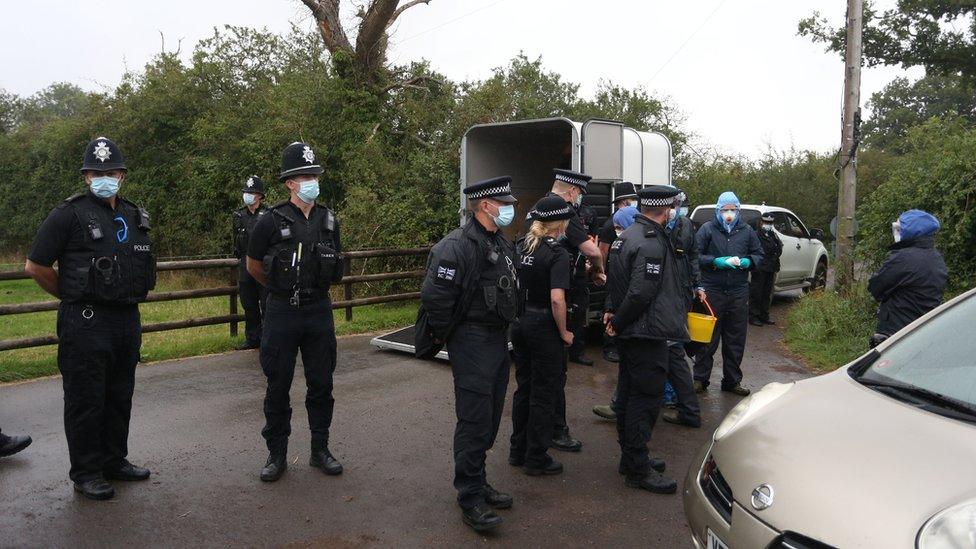
Police accompanied Defra officials to the farm in Wickwar on Tuesday morning
More than 140,000 people from around the world had signed a petition addressed to Prime Minister Boris Johnson to stop Geronimo's destruction.
Wildlife television presenter Chris Packham and the prime minister's father Stanley Johnson also gave their support.
A Downing Street spokesman said: "It's obviously highly distressing for someone to lose animals to TB and that's a situation that farmers sadly have to face.
"Our sympathies are with Ms Macdonald and any others that are affected by this terrible disease."
Ms Macdonald insisted Geronimo was a "perfectly healthy animal", adding: "Boris apparently is sympathetic, well I don't need his sympathy.
"I needed him to stop this in its tracks when he had the opportunity and look what's happened."
Chief veterinary officer Christine Middlemiss said it was a "terribly sad situation" but they had to follow the scientific advice and cull animals that tested positive for bTB in order to minimise its spread.
"Not only is this essential to protect the livelihoods of our farming industry and rural communities, but it is also necessary to avoid more TB cases in humans.
"No-one wants to have to cull infected animals if it can be avoided," she said.
A Defra spokesman said a post-mortem examination and a study of tissue samples would be carried out by veterinary pathologists from the Animal and Plant Health Agency and the process could take up to three months.
Ms Macdonald has called for Defra to allow for an independent witness to attend the examination alongside the pathologists.
'Devastation'
Defra said 28,356 cattle were compulsorily slaughtered in England in the 12 months to March 2021, after testing positive for bovine tuberculosis.
During 2020, a total of 205 camelids - animals such as camels, llamas and alpacas - were culled.
Defra said: "Bovine TB remains one of the greatest animal health threats to the UK, causing devastation for hard-working farmers and rural communities.
"We are pursuing a range of interventions in cattle and in badgers to eradicate the disease by 2038.
"If we do not take action, TB could pose an increased risk to animal and human health and to the international image and reputation of our cattle industry."

Geronimo timeline

Ms Macdonald imported Geronimo from New Zealand in 2017
Geronimo is brought to England from New Zealand in August 2017 by his owner Helen Macdonald
The alpaca twice tests positive for bovine tuberculosis in August and November that year
He is put into isolation away from the rest of the herd at the farm in Wickwar
The government applies for a court order in July 2018 to have him destroyed
Geronimo is given a stay of execution, with a deadline of the end of August for his slaughter
Ms Macdonald seeks a judicial review claiming new evidence shows the animal is healthy, marking the start of a series of lengthy legal battles
In November, Ms Macdonald wins the right to a review at the High Court in London
A hearing gets under way in March 2019 and Ms Macdonald claims government experts relied on "flawed science"
The case is dismissed in July 2019
Ms Macdonald starts an appeal and an order is made preventing Geronimo's death pending the application
She takes out an emergency injunction to delay a warrant to cull the animal before an appeal hearing on 29 July 2021
The case is once again dismissed. A judge agrees to delay the start of a second execution warrant until 5 August, which is later extended to 4 September
Geronimo is euthanised on 31 August

Follow BBC West on Facebook, external, Twitter, external and Instagram, external. Send your story ideas to: bristol@bbc.co.uk , external
- Published31 August 2021
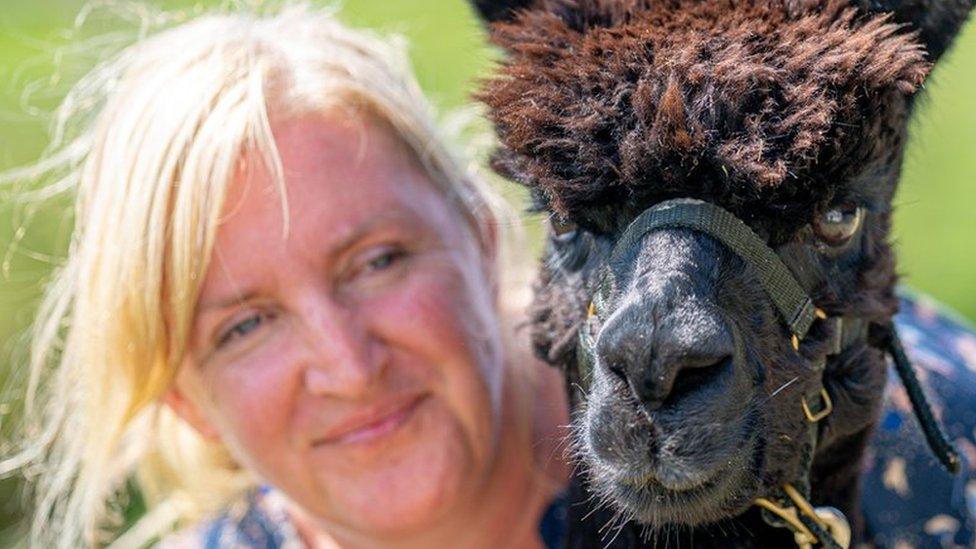
- Published18 August 2021
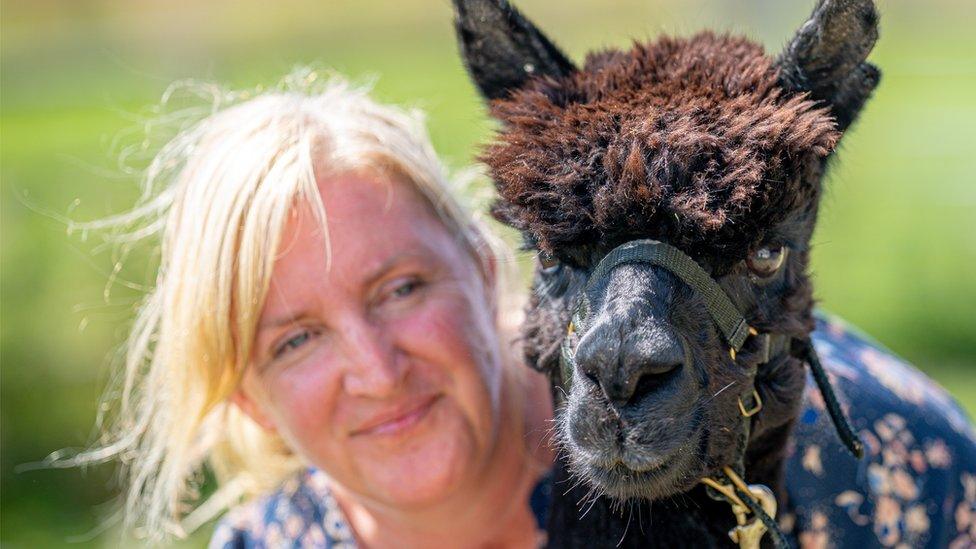
- Published29 July 2021
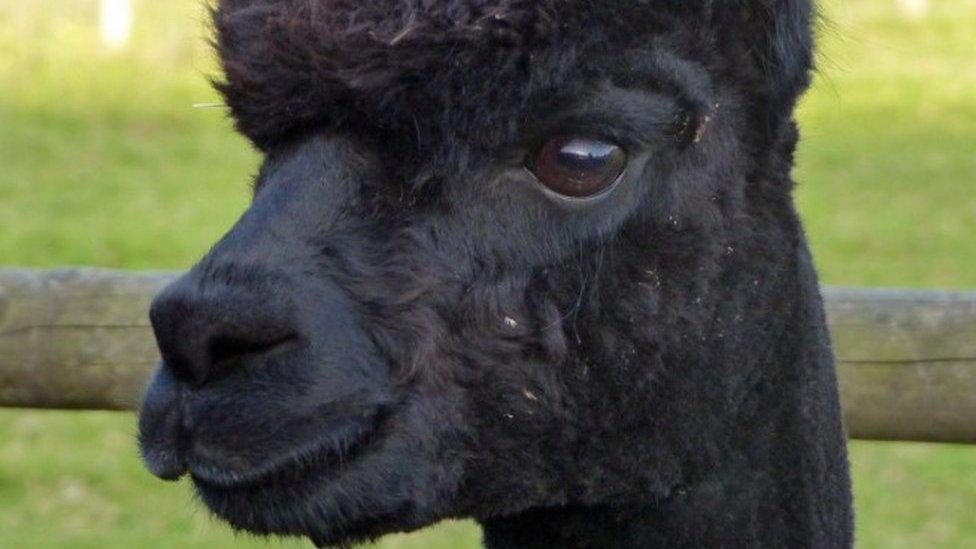
- Published8 August 2021
